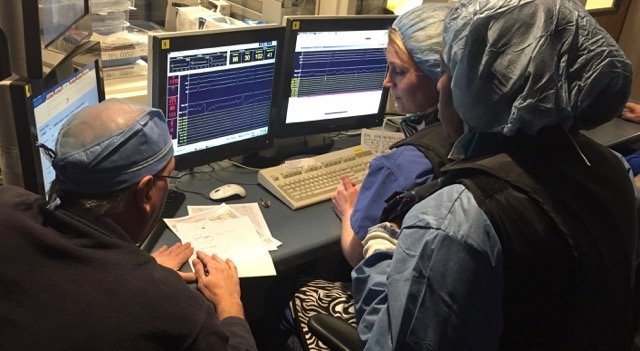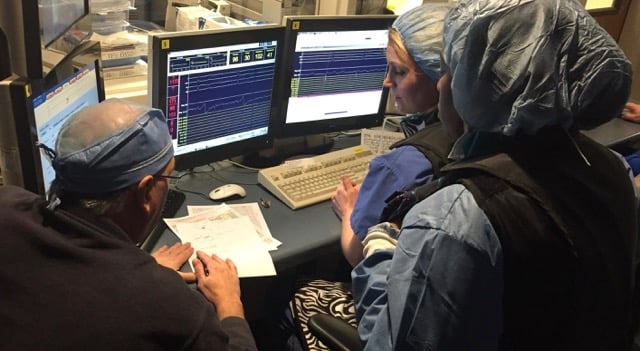

A New Approach to Electrophysiology Education
Published February 24, 2017


With a passion for continuous improvement and delivering high-quality care, hospital leaders at Duke University Heart Hospital decided to put more resources behind this important service area and place a greater focus on enhancing the expertise of their electrophysiology (EP) staff.
In January 2015, Duke collaborated with us to develop an EP training program. Using our combined strengths, we developed a comprehensive EP curriculum designed to prepare allied professionals for the Registered Cardiac Electrophysiology Specialist (RCES) exam. Leveraging mobile and web technologies, the training provided convenient continuing education tools for EP lab workers and addressed the problems facing many EP labs today. Learn how training can improve your lab here.
Developing a multi-faceted training program
To launch this effort, Duke’s leadership and staff worked side-by-side with us to assess clinical knowledge and training opportunities and deliver a customized curriculum through a series of one-on-one and group learning sessions. Below are a few program highlights.
- Delivered customized onsite training for six months working side-by-side, providing teaching and training during cases, break time, staff meetings and in several after-work group sessions. Each training moment was tailored to the questions and learning needs of those present.
- Developed an EP curriculum based on the RCES certification exam. The exam matrix guidelines, multilevel assessments and training materials were used to create a comprehensive curriculum and RCES prep course.
- Leveraged technology to make the curriculum accessible across multiple platforms. To encourage self-study and ongoing education, we delivered the curriculum via a web-based Learning Management System (LMS) and tablet-based format. The curriculum provides a variety of interactive tools including 3D illustrations/images, lectures, practice tests, glossary and references. (Now available online as EP Academy.)
- Conducted hands-on EP recording system computer training. The trainer was able to load actual cases and review them in a conference room setting for additional training.
- Created a customized site-specific quick reference guide to enhance job efficiency. A reference section was added to the tablet including physician preferences, equipment connectology and a common trouble-shooting guide.
- Established a mentorship committee to provide ongoing training. The staff selected individuals with extensive EP knowledge and leadership skills to conduct orientation programs, monitor new employee progress and plan additional learning events. Read the rest of the article
Education has proven to improve employee engagement, reduce retention and improve overall lab efficiency. Take a look at our FREE Guide for ideas on how training can help your lab.
{{cta(‘634f35be-6231-4de8-85b2-11b20319b31d’,’justifycenter’)}}


